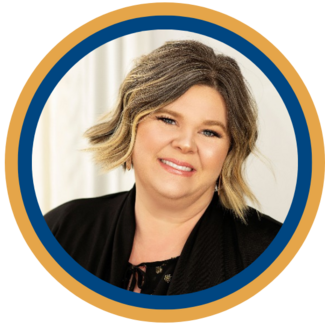Navigating Complexities in the Management of Tardive Dyskinesia
In this video filmed at Psych Congress 2024, Kristian Dambrino, DNP, PMHNP-BC, shares practical insights on tackling challenges that may arise when treating patients with tardive dyskinesia (TD). From tips on managing underlying psychiatric comorbidities and treating nonmotor symptoms of the disorder to the importance of continued education and championing patient comfort, Dambrino offers a holistic, nuanced approach to navigating complex presentations of TD in this informative discussion.
For more expert insights, visit the Tardive Dyskinesia Excellence Forum.
Read the Transcript
Kristian Dambrino, DNP, PMHNP-BC: Hey, my name is Kristian Dambrino. I'm a psychiatric nurse practitioner living and working in Nashville, Tennessee. I have my own practice, Dambrino Consulting and Wellness.
Psych Congress Network: How do you balance treating TD with managing underlying psychiatric disorders that require antipsychotics without worsening symptoms?
Dambrino: The data that we have on the safety, efficacy, and tolerability of vesicular monoamine transporter 2 (VMAT2) inhibitors indicates that the underlying psychiatric symptoms really, most of the time, remain the same. We're always going to consider individual variability when we're treating with these agents, but, in these clinical trials, participants were allowed to stay on their stable psychiatric treatment regimens. So, with that data I am expecting, when I'm treating with a VMA2 inhibitor, that I'm not going to be worried about worsening of those conditions.
Now, I'm always going to be assessing whether or not someone is adhering to what I'm prescribing. Are people taking the medications that they're prescribed? Because that is going to impact whether or not symptoms recur. So, if we're working with someone who may have schizophrenia, for example, is there anything that's going to be a barrier to medication adherence? Frankly, tardive dyskinesia is a huge barrier to medication adherence. If you are someone who is having involuntary movements and you learn that they're permanent, you're probably intuitively going to stop taking the medication that's causing [them] and so again we really want to make sure that patients know that stopping that medication can result in refractory symptoms and that's very important.
PCN: How do you manage non-motor symptoms like anxiety or depression in TD, and what role does multidisciplinary care play in treatment?
Dambrino: One of the most important things that I consider when I'm working with my patients is, how do I help people feel more comfortable? So, when we're talking about tardive dyskinesia, that comes into play when I am implementing an Abnormal Involuntary Movement Scale (AIMS) exam, for example. I want people to feel less self-conscious if they are aware of those movements, and not everyone who has tardive dyskinesia is aware that they're having that. But if they are, I don't want to induce more feeling self-conscious.
The other thing too is that there are patients who, let's say there is a patient who for part of their job, they do a lot of public speaking. Tardive dyskinesia can impact the ability to speak or to eat, to swallow sometimes. So, I really am thinking about, how do we manage that? If you're treating the tardive dyskinesia and it's causing distress, that is going to, for many people, reduce anxiety and improve mood. It's always important to look at the functional impairments of tardive dyskinesia and how does that impact anxiety and depression?
If you are having involuntary movements, you know, I've had a patient once who, someone called the police because they thought tardive dyskinesia was a behavior rather than an actual side effect of a medication. You can imagine that that kind of a thing is going to trigger anxiety and depression in patients and so really helping people feel a complete lack of judgment when they're in the room with me, no matter what they're going through, is going to help with that. It may not clinically reduce those symptoms but certainly we want to think holistically when we're working with patients who are living with this.
PCN: What key takeaways should clinicians keep in mind when recognizing and managing TD?
Dambrino: A very important takeaway when we're talking about tardive dyskinesia and recognizing it is that 1 case of tardive dyskinesia is 1 case of tardive dyskinesia. This can look different in every patient—we can be talking about someone who is blinking excessively, or where we see that kind of classical presentation of oral-buccal-lingual movements. But people can have diaphragmatic dyskinesia, where it almost looks like people are taking agonal breaths. So, it's important, really, I think that underscores the importance of collaboration.
If I'm working with a patient, and maybe I'm not sure, having the humility to collaborate is in the best interest of the patient. So, going to consult with a physician or another nurse practitioner colleague or physician assistant and really looking at what have we seen in clinical practice. And if we haven't seen it, go seek out resources where you can actually see a real-world patient case. We have more of these now than we did 10 years ago. It used to be that the only option we had for tardive dyskinesia, which we now know worsens those symptoms, were anticholinergics. So, education is really important and there's nothing like actually seeing it. We can read about it all day long, but until we actually see that and we can even see that drug-induced Parkinsonian symptoms and tardive dyskinesia can occur in the same person. So really, again, your treatment is only as good as your diagnosis and remembering that 1 case of tardive dyskinesia is only 1 case of tardive dyskinesia.
I'm Kristian Dambrino. Thank you so much for joining me today. I hope that you're able to take some of these practical insights back to your own clinical practice. Always remember, never be afraid to ask questions and learn more, and that's why Psych Congress is such an excellent resource.
Kristian Dambrino, DNP, PMHNP-BC, is a board-certified psychiatric mental health nurse practitioner and the founder of Dambrino Wellness, an outpatient mental health practice in Nashville, TN. She is pursuing her Doctor of Nursing Practice at Belmont University College of Nursing, with a current focus on innovative global nursing partnerships in Indonesia. Having worked extensively with severe and persistent mental illness in community mental health and crisis settings, Dambrino embraces a trauma-informed, evidence-based prescribing model for her patients.
© 2025 HMP Global. All Rights Reserved.
Any views and opinions expressed above are those of the author(s) and do not necessarily reflect the views, policy, or position of the Psych Congress Network or HMP Global, their employees, and affiliates.




















